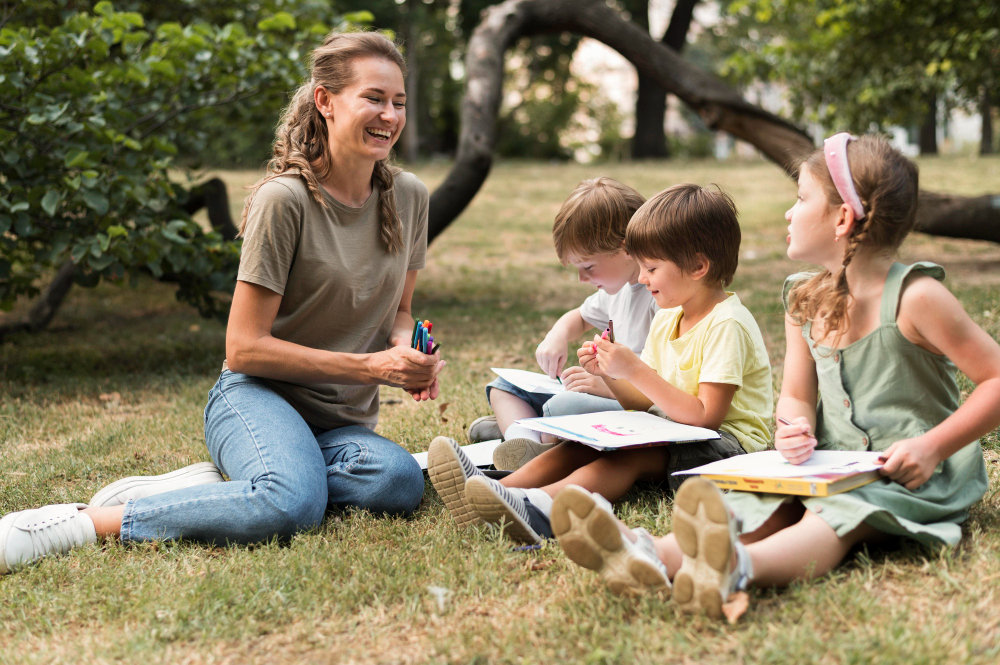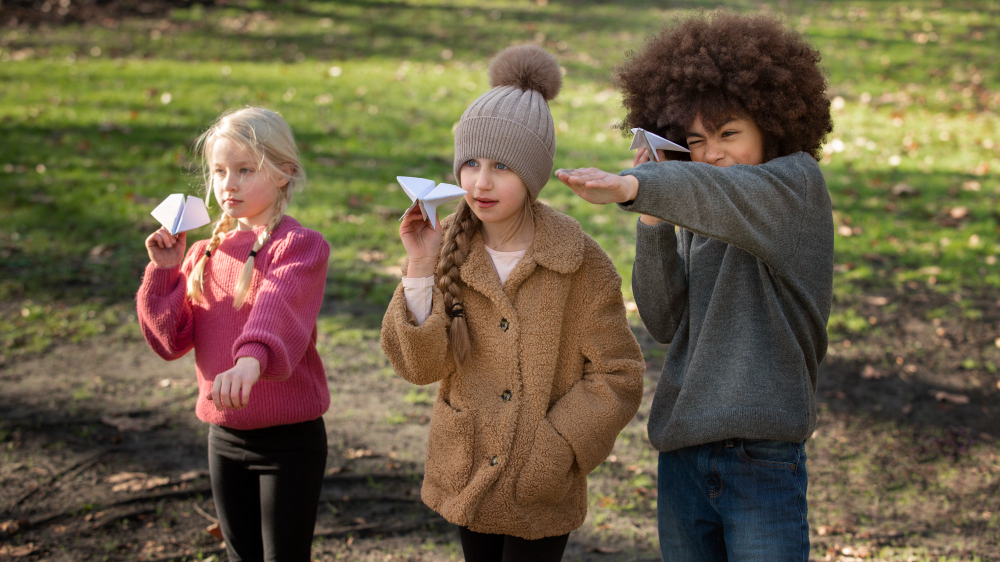The Benefits of Learning Outdoors
In a world where screens reign supreme, the benefits of learning outdoors for children are more significant than ever. At Rainard we have multiple outdoor learning spaces, so all classrooms have the opportunity to spend learning time outside. Our teachers take full advantage of them too, understanding the benefits of learning outdoors and knowing it’s a great option for their students.
Increased Cognitive Development
Learning Outdoors can stimulate cognitive growth in children in many ways. In a 2012 study two groups of middle school students were observed for 10 weeks. One group was taught math indoors, the other was taught math outside. The students who learned outside showed better academic performance while the indoor group showed “decrease in intrinsic motivation”.
Nature has a calming quality which can help children who struggle with ADHD. This can help them focus better, increasing cognitive abilities. Another study, published in Psychology Today suggests walking in nature or even viewing pictures of nature can improve directed-attention abilities.

Development of Wonder & Student Lead Exploration
Hands-on experiences in nature help children connect with the natural world. These experiences can be just outside the classroom or on field trips. Nature's unpredictability fosters creativity and adaptability. These experiences help develop a profound appreciation for science and ecology.
A child may notice a butterfly laying eggs on a leaf. This could promote questions like, “What happens when they hatch?”, “Why do they lay eggs?”, and “What will the caterpillars look like?”. Allowing the students to further explore their questions through self study helps them delve deeper into a subject and experience hands-on learning.

Development of Wonder & Student Lead Exploration
Outdoor group activities require children to work together, negotiate, and communicate effectively. This enhances their social skills and ability to collaborate.
In addition, interactions with nature and living creatures foster empathy and compassion in children. They learn to care for the environment and the well-being of all living things. This increases their world view and helps develop ownership of their environment.
There is overwhelming scientific evidence that time in nature affects our mental health in a positive way. An article in Science Advances provides evidence of the impacts of time in nature on cognitive functioning, emotional well-being, and other dimensions of mental health.

Nature is essential to learning. A rich education includes exposure and exploration in the outdoors. It is no wonder John Muir, the father of our National Parks System, said “In every walk with Nature one receives far more than he seeks.”

